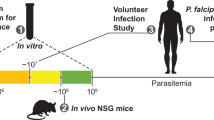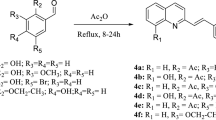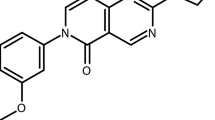Abstract
A NUMBER of rifamycin compounds have been found to be active against Gram-positive—and to a lesser extent against Gram-negative—bacteria, in vitro and in vivo, when administered parenterally. More recently rifampicin has been found to be active orally1–5. Several investigators have studied the action of the rifamycins on protein synthesis and have come to the conclusion that in Escherichia coli and Bacillus subtilis the primary effect of the rifamycin is the inhibition of DNA-directed RNA synthesis through the inhibition of RNA polymerase action6–12. Rifampicin has also been found to be active against some viruses13. Moss et al.14 reported that rifampicin was a specific inhibitor of vaccinia virus assembly.
This is a preview of subscription content, access via your institution
Access options
Subscribe to this journal
Receive 51 print issues and online access
$199.00 per year
only $3.90 per issue
Buy this article
- Purchase on Springer Link
- Instant access to full article PDF
Prices may be subject to local taxes which are calculated during checkout
Similar content being viewed by others
References
Frontali, L., Leoni, L., and Tecce, G., Nature, 203, 84 (1964).
Maggi, R., Pallanza, R., and Sensi, P., Antimicrobial Agents and Chemotherapy, 765 (Williams and Wilkins, Baltimore, 1965).
Bickel, H., Knüsel, F., Kump, W., and Neipp, L., Antimicrobial Agents and Chemotherapy, 352 (Williams and Wilkins, Baltimore, 1966).
Kradolfer, L., Neipp, L., and Sackmann, W., Antimicrobial Agents and Chemotherapy, 359 (Williams and Wilkins, Baltimore, 1966).
Maggi, N., Pasqualucci, C. R., Ballotta, R., and Sensi, P., Chemotherapia, 11, 285 (1966).
Frontali, L., Leoni, L., and Tecce, G., Nature, 203, 84 (1964).
Calvori, C., Frontali, L., Leoni, L., and Tecce, G., Nature, 207, 417 (1965).
Frontali, L., and Tecce, G., Antibiotics, Mechanism of Action, 415 (Springer-Verlag, Berlin, 1967).
Hartmann, K. O., Honikel, K. O., Knusel, F., and Muesch, J., Biochim. Biophys. Acta, 145, 843 (1967).
Wehrli, W., Nuesch, J., Knusel, F., and Staehelin, M., Biochim. Biophys. Acta, 157, 215 (1968).
Umezawa, H., Satoshi, M., Yamazaki, H., and Nitta, K., J. Antibiot., 21, 234 (1968).
Lancini, G. C., and Sartori, G., Experientia, 24, 1105 (1968).
Subak-Sharpe, J. H., Timbury, M. C., and Williams, J. F., Nature, 222, 341 (1969).
Moss, B., Rosenblum, E. N., Katz, E., and Grimley, P., Nature, 224, 1280 (1969).
Author information
Authors and Affiliations
Rights and permissions
About this article
Cite this article
ALGER, N., SPIRA, D. & SILVERMAN, P. Inhibition of Rodent Malaria in Mice by Rifampicin. Nature 227, 381–382 (1970). https://doi.org/10.1038/227381b0
Received:
Issue Date:
DOI: https://doi.org/10.1038/227381b0
This article is cited by
-
Interaction of isoniazid drug with the pristine and Ni-doped of (4, 4) armchair GaNNTs: a first principle study
Journal of Inclusion Phenomena and Macrocyclic Chemistry (2017)
-
Interaction between rifampicin, amodiaquine and artemether in mice infected with chloroquine resistant Plasmodium berghei
Malaria Journal (2014)
-
Assessment of in vivo antimalarial activity of rifampicin, isoniazide, and ethambutol combination therapy
Parasitology Research (2010)
-
The action of metabolic inhibitors on microgametogenesis in Plasmodium yoelii nigeriensis
Zeitschrift f�r Parasitenkunde (1977)
-
Effect of Rifampicin on the Development of Tumours induced by Adenovirus in Male Hamsters
Nature New Biology (1972)
Comments
By submitting a comment you agree to abide by our Terms and Community Guidelines. If you find something abusive or that does not comply with our terms or guidelines please flag it as inappropriate.



